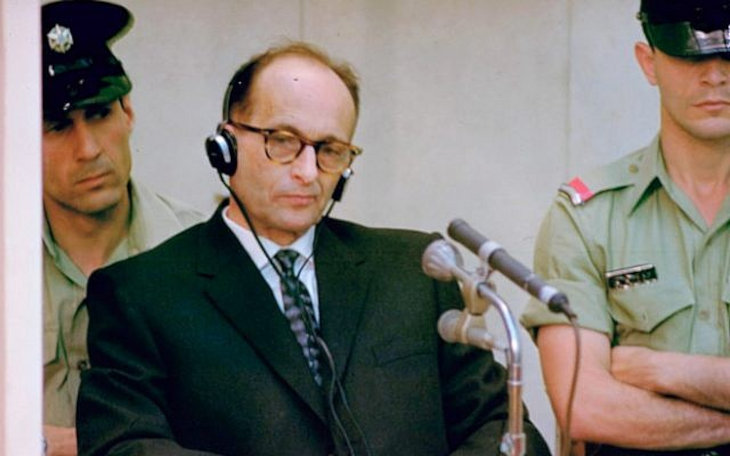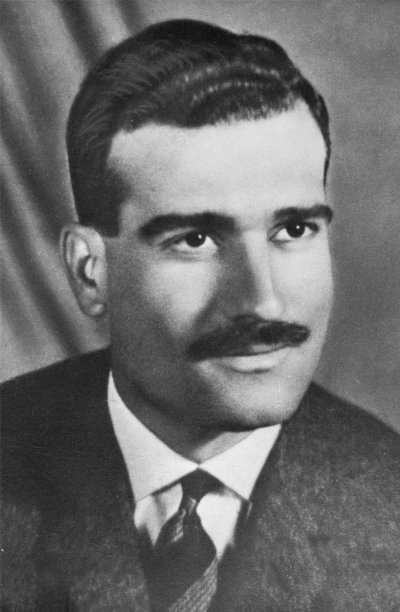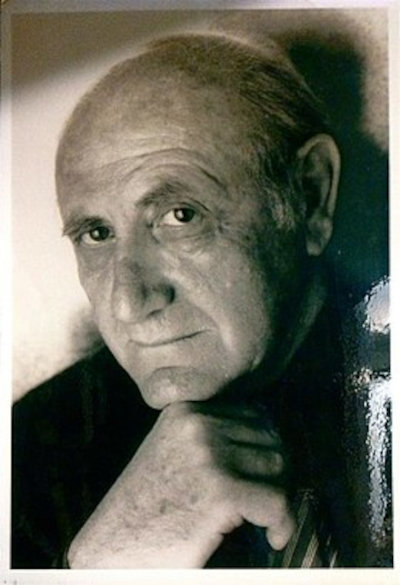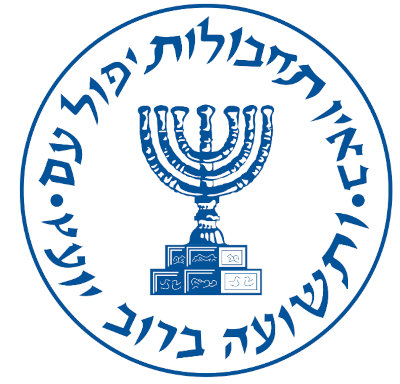 Vampire Weekend's Surprising Jewish Stories
Vampire Weekend's Surprising Jewish Stories


12 min read
Unusual covert operations, ethical dilemmas and the Rabbi of the Mossad.
Israel’s spy agency, the Mossad, has a reputation for ruthlessness, an ability to strike Israel’s enemies anywhere in the world and the capability to place agents within the deepest strongholds of the enemy. The assassinations of Iranian commanders and nuclear scientists, the placement of agents high up within the Iraqi and Egyptian governments and vengeance against terrorists all add to the agency’s street cred.
All of the above fall into the classic operational patterns of most other spy agencies. But the Mossad also engages in operations that are somewhat outside the box of regular intelligence gathering and defensive activities.
For example, soon after the establishment of the State of Israel in 1948, the agents of the Mossad were tasked with hunting down and killing Nazi war criminals who had escaped justice. Famously, they tracked Adolf Eichmann, one of the architects of the Holocaust, to Argentina, where they abducted him and brought him to Israel to stand trial for his crimes.1 He was found guilty of all charges and hanged on June 1st 1962. These Nazis no longer posed a danger to the Jewish people or Israel, but bringing them to justice was seen as a duty of the Mossad toward the Jewish nation as a whole.
 Adolf Eichmann on trial in Israel
Adolf Eichmann on trial in Israel
The Mossad was tasked by the President of Israel, Yitzchak BenZvi, to retrieve a famous and ancient manuscript of the Hebrew Bible, known as the Aleppo Codex2, from Aleppo in Syria and return it to Israel. They were also involved in the collection and purchase of the Dead Sea Scrolls. Retrieval of ancient Biblical manuscripts and archaeological artifacts is not a classic intelligence agency activity but is one that the Mossad has participated in numerous times.
As part of Israel’s feeling of responsibility for world Jewry, and for the perpetuation of Jewish people, the Mossad helped finance and organize clandestine teaching of Judaism and the Hebrew language to Jews behind the Iron Curtain during the Soviet Era. It was also responsible for secret and risky mass immigration of Jews to Israel from countries such as Ethiopia3, Morocco and Egypt.
 Israeli naval commandos on a secret Red Sea rendezvous (mossad Exodus - Geffen Pub.)
Israeli naval commandos on a secret Red Sea rendezvous (mossad Exodus - Geffen Pub.)
The Mossad ran a covert operation to rescue Ethiopian Jews and bring them to Israel. Most recently, the Mossad was involved in obtaining medical gear and knowledge to combat Covid-19.4 None of these operations were of a military or intelligence gathering nature but were part of the Mossad’s overall task of protecting Israel and the Jewish people as a whole.
In addition to all of this, the Mossad is unique among intelligence services in being the only spy agency in the world with its own Rabbi. According to media reports in Israel, the Mossad appointed a staff Rabbi to provide religious guidance and rulings for agents in Israel and overseas.5 A large percentage of officers and soldiers in the Israel Defense Forces are religiously observant Jews and since the Mossad often recruits from the IDF, the number of observant agents has increased. These agents often seek the guidance of Jewish law and ethics and need a Rabbi.
The IDF have a chaplaincy unit (in which I served), but answering ethical, legal and guidance questions for clandestine agents requires a Rabbi with knowledge and experience in security matters, and with a high-level security clearance. Unlike most Rabbis who publish their legal rulings for peer review and for educational purposes, the Mossad Rabbi’s rulings are classified as is his identity.6
What are some of the questions that the “spy Rabbi” may have to deal with? When an undercover operative is living in a hostile environment he or she must not do anything or possess anything that may reveal their actual identity. Obviously a Jewish prayerbook app on your smartphone, a pair of Tefillin, a yarmulka or Shabbat candlesticks are not the smartest accessories for a spy. Not observing the commandments, eating non-kosher food, not observing Shabbat are a given for a spy in enemy territory, or on an operation.
 Eli Cohen
Eli Cohen
There are ample precedents to permit this for security reasons,7 some even dating back to Biblical times, such as soldiers on the front line eating non-kosher food8 and the waging of warfare, even on the Sabbath.9 One of the most famous of Mossad agents, Eli Cohen, lived in Damascus for years and conveyed vital intelligence to Israel, before his capture and execution in May 1965.10 He lived life as a secular, Syrian citizen of Muslim origin and while there was completely immersed in his persona. However, when an agent such as Eli Cohen, would go on a furlough and via a circuitous routed return to his family, should he plan his visit for Rosh Hashanah so that he can also hear the shofar blowing, for Passover to participate in the seder, or for Purim to hear the Megillah being read?
A similar question was asked by a Jew imprisoned in Egypt in the 16th century to Rabbi David ibn Zimra, the Chief Rabbi of the Jews of Egypt. The governor of the prison granted the prisoner permission to leave for a day, so he asked the Rabbi when he should schedule his furlough. Rabbi David ibn Zimra replied unequivocally that the prisoner should choose the earliest opportunity and perform the first commandment which becomes available. He based the ruling on a famous Talmudic principle that one may not “pass over a mitzvah”11 i.e., when you have an opportunity to do a mitzvah, a commandment, you must seize that opportunity and not let it go by; this is a Jewish version of carpe diem.
He also argues that in circumstances of this sort, one never knows what the future may bring, if the opportunity will be available or even if he will be alive, so the Rabbi said, seize the moment.12 I would imagine that the Mossad Rabbi would rule similarly for one of agents.
Honey traps are a feature in spy movies, where an enemy agent or informant is seduced by an agent and convinced to turn or inform or is lured into a situation where they are kidnapped or killed. Israeli physicist, Mordechai Vanunu, who worked in Israel’s top-secret nuclear program, travelled to London and contacted journalists to whom he said he would reveal Israel’s nuclear secrets. He was befriended and seduced by a woman called Cindy, joined her to party in Italy, was kidnapped by the Mossad and spent 18 years in prison in Israel.13 Is such behavior permitted for either a man or a woman?
Jewish law places the saving of life as a priority over all the commandments, with the exception of idolatry, murder and sexual immorality. One may not worship and idol or apostatize to save one’s life, similarly one may not murder an innocent third party to save one’s life, nor may one commit incest or adultery to save a life.14 If so, it would seem that a honey trap is forbidden. However, here also there are some fascinating Biblical precedents to this.
The most famous case of a honey trap, albeit initially unwilling, was Esther, the heroine of the Purim story, who saved the entire Jewish people by marrying Achashverosh, the Persian king, finding favor in his eyes and using her influence to save the Jews.15 One of the greatest Jewish legal authorities in history, Rabbi Yechezkel Landau, saw Esther as a justification for this, but only in a situation where the person involved would be, like Esther, “saving the entire Jewish people, men and women, from the youth to the elderly.”16
Another Biblical precedent involved Yael during a war against the Canaanites. The Canaanite army had been defeated but the general, Sisera, escaped and was heading home to regroup and lead another attack. He passed through the village of the Kenites, where Yael invited him to her tent, seduced him17, and, while he was asleep, drove a tent peg through his temple, killing him.18 Yael is praised by the prophetess, Deborah, for her heroism19 and according to the Talmud is a classic example of the greatness of “one who performs a sin for the sake of heaven.”20
Another moral issue that has arisen is the idea of revenge. Clearly, killing a terrorist who is planning an attack, or one who recruits, funds or organizes terror is not a revenge killing but is straightforward self-defense, in accordance with the famous Talmudic precept, “One who is coming to kill you, arise early and kill him first”21 Also, if a terrorist knows that he will be hunted down, even after retiring, even if he changes careers to a peaceful pursuit, he may think twice about acting, and those who help in planning will be pre-occupied with their own safety rather than with planning others’ deaths.
However, it may be argued that an elderly Nazi war criminal no longer poses a threat to the Jewish people. An argument can be made that revenge, even against one who is no longer a threat, can be a deterrent to those contemplating acts of aggression. It is also possible that in cases in which our people have been attacked, that is considered an act of war and hence justifies a reprisal.22 Saadiah Gaon, a medieval Jewish philosopher, maintained that “The desire to take revenge was planted in the soul of humans in order that God’s justice might be carried out against evil doers. In this way, the welfare of humanity would be served.”23
Our family had the privilege to meet a retired Mossad agent, Peter Malkin, of blessed memory, at a number of Shabbat retreats in the US. He was a member of the snatch team who abducted Eichmann and brought him to Israel. One story he told typified for me the “Jewishness” of the Mossad. After capturing Eichmann and transporting him to the safehouse, Malkin noticed that Eichmann was missing his glasses. Not wanting to leave behind any signs of a struggle he decided to go back to the location of the abduction on Garibaldi Street and retrieve the glasses.
 Peter Malkin
Peter Malkin
While finding the glasses, Malkin observed Eichmann’s son, Horst, looking out the window for his father, now over two hours late, and Malkin felt bad for the innocent child.24 Later while returning the glasses, Eichmann said to Malkin, “What will be with my Horst?” Malkin responded, referring to his nieces and nephews murdered by the Nazis, “And what was with my Yosele, Rivki and Sarale?”
Eichmann, looked back at him uncomprehending and said, “But they were Jews.” Peter Malkin said to us that it took all of his self-control and discipline not to kill Eichmann on the spot. The difference between a hardened and seasoned Mossad agent, Peter Malkin, who felt pity and sympathy for the son of an infamous Nazi, and the Nazi himself who couldn’t even understand the suffering of Jewish children, could not be more obvious. Having met Peter Malkin on a number of occasions I can attest to the fact that despite his past that was filled with (albeit justified) violence, he did not lose his sense of compassion and mercy.
The agents of the Mossad are continuing a legacy going back thousands of years, not only in terms of strategy and security, but also in seeking out Judaism’s views on the ethical, legal and moral aspects of their role.
 Emblem of the Mossad
Emblem of the Mossad
The official emblem of the Mossad is an ancient menorah surrounded by a verse from Proverbs, “Where there is no strategy, the people fall; but in the abundance of counsel there is salvation.”25 The menorah symbolizes the light of Jewish wisdom, and the eternity of the Jewish people. The Mossad supplies and aids in strategy for the State of Israel, offers counsel and advice to its political and military leadership and is also concerned with the well-being of the entire Jewish people.
